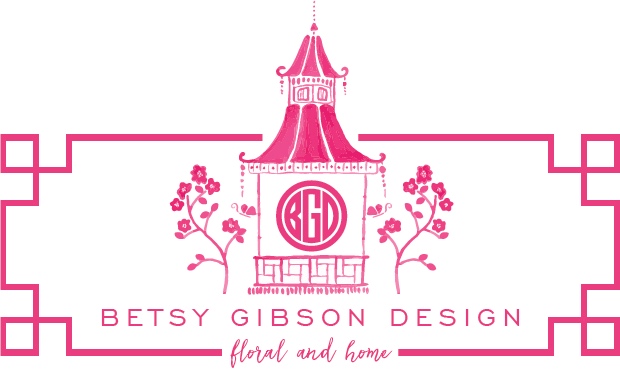Flowers Never Fail Us
Affiliate Disclosure: This page may contain affiliate links, meaning that I receive commissions for purchases made through those links, at no cost to you.
Why am I posting this again in 2020?
Because it is so relevant!
This post was originally published in May of 2017 after the death of my former husband. However, in light of what we are all facing right now—as a society and as a world—I thought it would be fitting to post it again. Flowers really do have the power to heal us, to calm us and to help us redirect our collective focus. I’m not sure of the “why” behind that, I just know it to be true. And I don’t know about you, but I can assuredly say that I’m looking forward to starting some plantings as part of my #StayHomeStaySafe #QuarantineCrew activities. I just have to wait a little bit longer….until we get beyond that last frost. In the meantime, I’ll take all of my plans from years gone by and choose one with the goal of finally getting it done!! (Am I sorry that I ripped out my incredible perennial garden several years ago? Yes. But I was on Nantucket for months at a time, and so I felt justified in leaving my garden bare. After all, I was “planning”. Now that home is my one and only place for the foreseeable future, it’s time to get to work and implement those plans!!!)
Plus….digging in the dirt is good for the soul!!
Original Post
I’m so glad to be back!! I have missed this happy space….!
I had my “next” blog post all written, and I was looking forward to posting it after Historic Garden Week in Virginia had wrapped. I had the post after that one written, too. I was ahead of schedule and moving at a rapid clip (for me). But then my world stopped short, and I stopped with it for a few beats. In my case, the unexpected and tragic loss of a brilliant mind and a gentle soul, the loss of someone who had been such an important part of my life as a young adult, hit me hard. Those first few days were governed by shock. I could not speak, I could not think and I certainly could not write. But soon the days grew brighter, acceptance set in, and I realized that I was ready to move forward with happiness and gratitude. I also noticed something that I hadn’t paid much attention to as a younger adult….
There are times in this world when there are just no words. Or when words are simply not adequate. Or when they fail us completely, despite our trying to use them, leaving us floundering for the ever elusive "right" thing to say, whether to ourselves or to others. But there are always flowers, and they speak for us when we cannot speak for ourselves. Every single time. They never fail us.
Rhododendrons. ©betsygibsondesign
The use of flowers as symbols (e.g., Daisies symbolize innocence; Peonies symbolize honor and compassion) or as metaphors to help explain how we relate to the world around us is a time honored tradition in the worlds of literature, art and religion. Floral imagery knows no cultural bounds, either. Everyone understands flowers, and flowers have the power, often, that words do not, to make a statement.
Peony. ©betsygibsondesign
Floral imagery, whether as symbol, metaphor or both, can be found in the classic texts and works of art of ancient Greece and Rome, as well as later in the Bible. Florals and botanicals were very often used (and not always consistently) to signify one thing or another—-whether virtue or vice,God or mortal—or to explain the world, as through ancient Greek and Roman mythology. (The myth of Narcissus comes to mind, since we’ve just recently finished with the Narcissus—Daffodil— season here in the Northeast!). Floral symbolism and imagery has remained popular through the centuries. Works by Shakespeare, T.S. Eliot, F. Scott Fitzgerald and Emily Dickinson (to name just a few) all contain floral imagery, whether as symbol, metaphor or both. Botticelli, Manet, Monet, O’Keefe and Warhol, among others, used flowers and botanicals in the visual arts to express beauty, yes, but also to convey ideas or thoughts that could only be understood by looking at and by studying the natural object as it had been created by the artist. These writers and artists all knew what we all understand. That the language of flowers is universal, and that flowers can tell the stories of our everyday lives. Flowers can mark all of the moments of our lives, from enhancing the mundane to livening up the fun to, finally, underscoring the truly meaningful, beautiful, special or otherwise significant moments of being human. They can comfort us, remind us of times past and help us to heal.
Put simply, flowers are special. They always have been, and they always will be. That will not change. They have powers that we don't necessarily realize until we think about them. Flowers embody and represent all that is beautiful in the natural world. They are a force of nature, always reaching for the sky and the sun, never to be deterred. Their life cycles are an affirmation of life and the rhythms that mimic our own. They remind us that the world is always in motion--that there is a definite time for each and every flower--to form, to grow, to bloom, to provide us with beauty and strength, or beauty and serenity, or just plain beauty--and then to wither away with the promise to us of new life to come.
When it's time.



